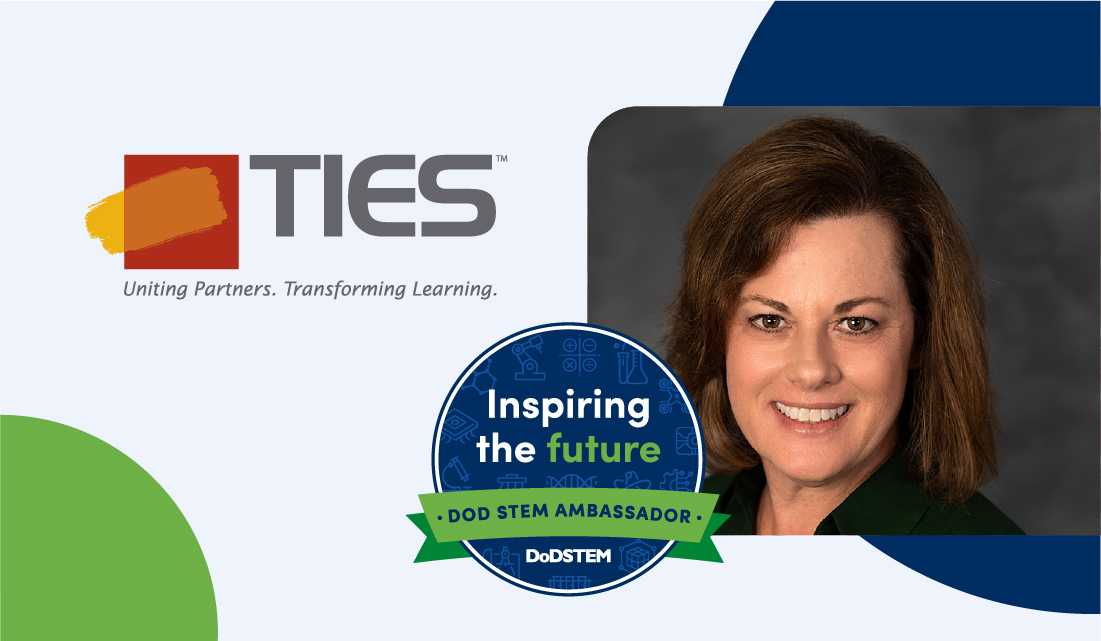DoD Internships – The Interview
“You’ve Got This!”
“You’ve Got This!”
27 Jun 2023
An internship at a DoD research institution provides a truly unique opportunity for students to work directly with, and be mentored by, scientists, engineers, and mathematicians. These experiences and contacts could potentially lead to a career at a research lab. This blog post will help with the application process, specifically the applicant interview.
The following was written by Nancy Rowland, a STEAM Outreach Specialist and DoD STEM Ambassador. DoD STEM Ambassadors work with the Defense STEM Education Consortium (DSEC) to advance STEM outreach for students who are underrepresented in STEM and/or military connected. Rowland was selected by the Teaching Institute for Excellence in STEM, a DSEC partner, as their DoD STEM ambassador for the 2021-2022 school year.
If you are considering a career in a STEM field, you might want to investigate internships. Internships are a way for students to apply skills learned in the classroom to a work setting. STEM internships are particularly helpful in providing real-world work experience and giving students an idea of what they like and don’t like in a career. Internships also create opportunities to meet potential mentors who can share feedback and offer help with future career opportunities.
There are many exciting opportunities for high school students who are interested in the STEM career field through the DoD, including at the Army, Navy, and Air Force research institutions. An internship at a DoD research institution provides a truly unique opportunity for students to work directly with, and be mentored by, scientists, engineers, and mathematicians. The experiences and contacts could potentially lead to a career at one of these agencies. A career with a DoD agency does not mean joining the military. Rather, there are many careers with these agencies that are classified as civilian jobs, similar to working for corporations, nonprofits, or nongovernmental agencies.
Generally, the applications ask for similar documents and information. It is good to know what is needed and collect everything before starting the application. Some examples of documents and information you will need are as follows:
How can you prepare for an internship interview?
If you are asked to interview you have made it through the first part of the applicant evaluation process. This is great news! It means you have a real shot of securing the internship. To increase your chances of success, prepare for the interview. First you should research information about the agency and specifically the position for which you are applying. During your research consider the following:
Prepare a list of questions that an interviewer might ask you and practice your responses. Some examples of questions are as follows:
As you are practicing your responses keep in mind the STAR method of responding to interviewers’ questions. STAR stands for Situation, Task, Action and Result.
The evening before the interview, pick out clothes that you feel good in and that are professional, such as a collared shirt and a pair of pants, nothing low cut or that is too revealing. If your interview is in person, make sure you know where you are going or who is taking you to the interview. Give yourself plenty of time for unforeseen events, such as traffic. If your interview is virtual make sure you can access the platform (e.g., Zoom, Teams) and log on 10 minutes early. Finally, the night before the interview, get a good night's sleep. This is not the night to go to a big party and be out late.
Once you get to the interview BREATHE! You’ve done what you can to prepare and you have been selected for an interview. As you are responding to questions, PAUSE. Make sure you understand the question and repeat it if you are unsure what they are asking. Interviewers are trying to get to know you — be yourself.
After the interview send a “thank you” note either by email or snail mail. This is old fashioned but will show the interviewer that you are serious and have taken the time to follow up.
Good Luck!
Defense STEM Education Consortium (DSEC) is a collaborative partnership of STEM-focused organizations dedicated to addressing and prioritizing our nation's STEM talent. DSEC aims to broaden STEM literacy and develop a diverse and agile workforce with the technical excellence to defend our nation. Through strategic investment in STEM education and outreach activities, the effort will provide students with more exposure to educational and career opportunities as well as DoD research. DSEC is led on behalf of DoD STEM by RTI International.
Teaching Institute for Excellence in STEM’s (TIES’s) goal is to work with school districts to ensure that all young people complete their secondary and postsecondary education “STEM ready.” This vision is intentionally inclusive of all students and reflects educational inequities. TIES defines success not by whether students choose to pursue STEM careers but by whether they have been provided high-value, relevant education that allows them to graduate with the skills and knowledge to make informed choices. TIES’s role in DSEC is to expand partnerships between numerous TIES ecosystem projects and DoD laboratories.
